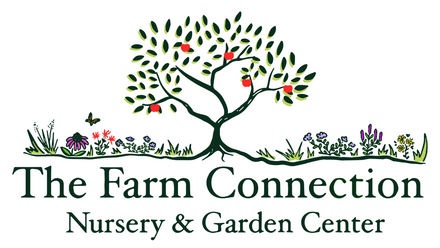Fall is one of our favorite times to plant. The cooler weather makes it easier on both the gardener and the garden, and perennials planted now have the chance to establish strong roots before spring. With mild soil temperatures and gentler sun, roots grow steadily in fall, establishing before winter sets in.
Planting in September and early October gives your perennials the best head start for a vibrant spring.
WNC Native Perennials to Plant Now
Fall is an ideal window for getting native perennials into the ground. Many of our favorites are available online and in-store right now, including:
- Asters – Reliable bloomers that return year after year, supporting pollinators well into fall.
- Native Grasses – Like Little Bluestem and Switchgrass, which add movement, structure, and winter habitat for wildlife.
- Baptisia (Wild Indigo) – A deep-rooted perennial with striking spring flowers in varieties of blue, yellow, white, or cream, and impressive longevity.
- Jacob’s Ladder – Early spring blooms, delicate foliage, and a woodland favorite.
- Great Blue Lobelia – Brilliant spikes of blue flowers, excellent for wet soils and pollinator support.
- Milkweeds (Asclepias spp.) – Essential for monarch butterflies and other pollinators.
- Blue Vervain – A tall, stately plant with violet flower spikes that thrives in moist soils.
- Echinacea (Purple Coneflower) – Tough, drought-tolerant, and loved by pollinators and birds alike.
- Monarda (Bee Balm) – Aromatic, colorful, and excellent for pollinators.
We specialize in plants that are adapted to our soils and climate here in WNC, making them dependable performers and valuable additions to pollinator habitats.
Planting Tips for Success
Digging the hole: Dig 2–3 times as wide as the root ball, but only as deep as the container. Planting too deep can stress or even kill perennials.
Amending the hole: Fall is not the season to load up on nitrogen. Instead, focus on phosphorus and potassium to encourage root development and winter hardiness.
A plant’s NPK (Nitrogen-Phosphorus-Potassium) needs shift with the season.
- Nitrogen (N): fuels leafy top growth, which isn’t the priority in fall. Instead use;
- Phosphorus (P): Supports root growth (e.g. rock phosphate or bone meal).
- Potassium (K): Improves stress tolerance and overall hardiness (e.g. greensand).
We use organic products from Seven Springs Farm, which we proudly carry in bulk, or in smaller quantities for the home gardener, to give your perennials a gentle, natural boost.
Watering Through Winter
Watering in winter is very rarely needed, but there are exceptions.
- Moisture is protection: Dry roots are more likely to freeze, while moist soil insulates and protects.
- When to water: Only during extreme dry spells, give plants a deep soak to keep roots healthy.
- Avoid overwatering: Waterlogged soil can be just as damaging as drought.
Planting perennials in fall means less stress for your garden and bigger, healthier, more resilient plants come spring. With cooler air, steady rainfall, and mild soil temperatures, roots grow strong and steady all season long. By the time spring arrives, your plants are ready to burst into bloom.
Shop in-store or online at The Farm Connection for native perennials, organic fertilizers, fall soil amendments, and everything you need for fall planting. Find out for yourself why fall planting is our favorite way to set the stage for a thriving, colorful spring.

